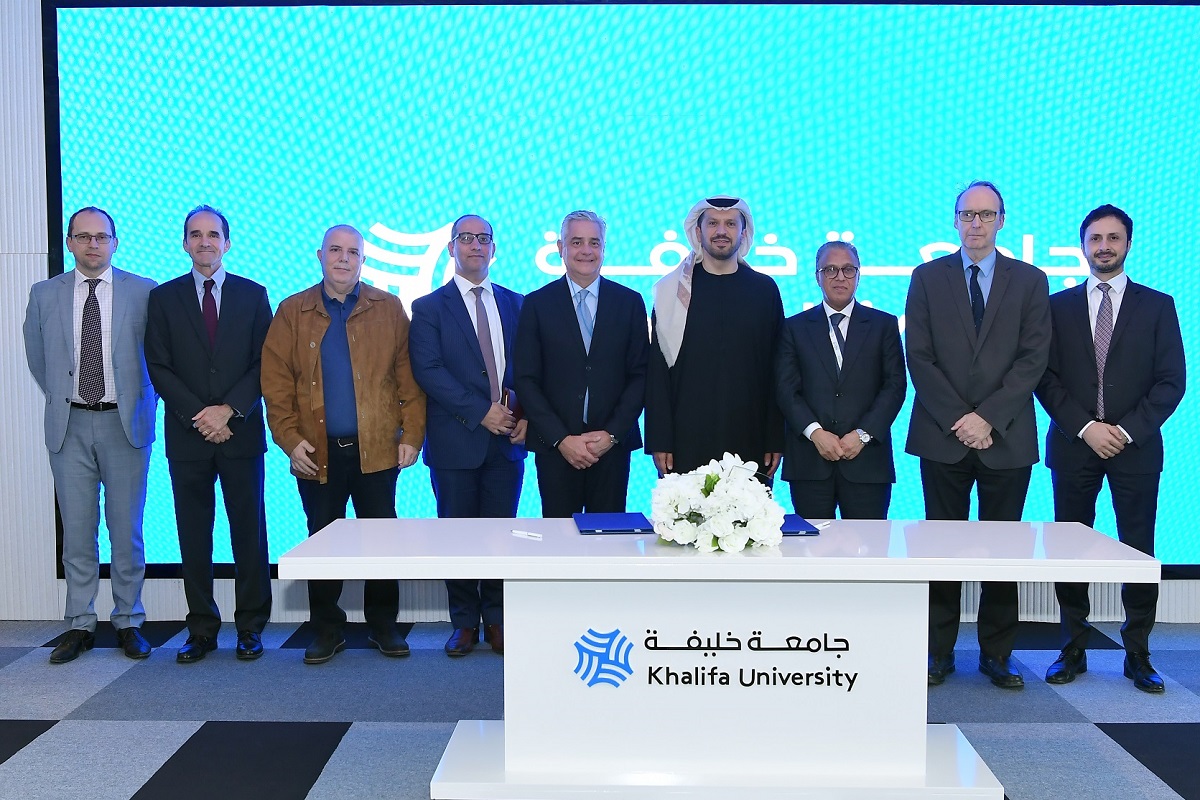
Khalifa University of Science and Technology has signed a memorandum of understanding (MoU) with the Morocco’s National Agency for Energy Efficiency (L’Agence Marocaine pour l’Efficacité Énergétique – AMEE) for research collaboration in energy-efficient technologies.
The agreement was signed by Dr Arif Sultan Al Hammadi, Executive Vice-President, Khalifa University of Science and Technology, and Said Mouline, Chief Executive Officer, AMEE, recently.
Dr Arif Sultan Al Hammadi said: “Khalifa University is renowned for pioneering innovations in energy-efficient technologies covering various renewable energy areas and this MoU will pave way for such innovations to reach communities that require energy. We are delighted to enter into this research collaboration with AMEE and we believe we will be able to offer Morocco the most suitable solutions towards the country’s transition to the clean energy route.”
Saïd Mouline, said: “The collaboration with Khalifa University, a well-known university respecting the environment and promoting energy efficiency, is in line with our strategy of long-term partnerships. With this partnership, AMEE will support a major operator, to enable it to take a step forward in its sustainable approach. The operationalization of energy efficiency is nowadays a privileged tool of good governance and it is essential for reducing the energy consumption and the realization of an increasingly significant green growth rate.”
According to the agreement, the two institutions will jointly promote and facilitate technology exchange and development in several aspects of energy efficiency, and renewable energy covering advanced materials, high performance equipment and expertise. The two have also agreed on fostering joint development and demonstration of clean projects in clean technology innovation.
In addition, AMEE will offer assistance with regard to accessing data on the hourly electricity demand profile of the entire country, while sharing support materials such as technical presentations, studies and successful case studies. On its part, Khalifa University will investigate possible energy transition pathways to complete substitution of fossil fuel energy resources by renewable energy, using the hourly electricity demand profile by regions and by industries.
The collaboration is part of Morocco’s ambitious national energy strategy which targets over 50% of installed electricity production capacity from renewable sources by 2025 and aims to cut energy consumption by 15% by 2030. The country also seeks to reduce greenhouse gas (GHG) emissions by 32% by the year 2030.
Khalifa University’s Research Center for Renewable Energy Mapping and Assessment (ReCREMA) has become a regional research hub for renewable energy mapping and assessment in desert environment in the UAE, Kuwait, Saudi Arabia, Egypt, and Oman. It is playing a pro-active role in bringing International Renewable Energy Agency’s (IRENA) Global Atlas Project to the UAE. The Global atlas servers are presently hosted at the university’s Data Center; operated and maintained by ReCREMA engineers.
ReCREMA was also mandated by the Saudi Government (KA-CARE) to develop the Saudi Solar Atlas and is currently operating the solar forecasting system for Saudi Arabia.
Moreover, Khalifa University currently has several energy efficient technologies-related projects. These include a project to develop a new blend of refrigerants meant to have little or no global warming potential (GWP), to replace widely used refrigerants like hydrofluorocarbons (HFCs).
Khalifa University recently joined the official launch of the Emirates Nuclear Technology Center (ENTC) at its campus. A collaboration with partners including the Emirates Nuclear Energy Corporation (ENEC), and the Federal Authority of Nuclear Regulation (FANR), ENTC aims to support the long-term sustainability of the UAE’s Peaceful Nuclear Energy Program by creating a dedicated innovation hub for peaceful nuclear technologies.
Clarence Michael
News Writer
14 January 2020